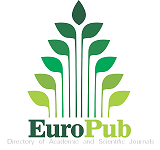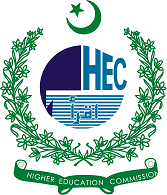Addressing Contract Cheating in Pakistani Higher Education: Strategies for Upholding Academic Integrity
DOI:
https://doi.org/10.58932/MULA0015Keywords:
Contract cheating, Academic Integrity, Higher Education, PakistanAbstract
Contract cheating has strained the higher education system worldwide, Pakistan is no exception. However, unlike Canada, UK, USA, Pakistan has limited research related to the issue under discussion. The presence of contract cheating has undermined the academic integrity and academic credibility of higher education in Pakistan. This paper sheds light on the role of Quality Assurance Cells in higher educational institutions including University of Management and Technology, University of the Punjab, Lahore College for Women University and Minhaaj University in addressing this issue and proposes recommendations to foster academic integrity. This paper tries to investigate this complex issue, offering strategies to the institutions for addressing it and fostering a culture of academic integrity. In a pursuit to comprehend contract cheating and devise strategies to eradicate it, this study draws upon Albert Bandura's Social Cognitive Theory. The main assumption of this theory is that behavior is learned through observational learning, personal agency, and self-regulation, influenced by both individual and environmental factors. Applying Social Cognitive Theory to the context of contract cheating allows for a comprehensive understanding of the issue, the factors contributing to it, and the strategies that universities can utilize to mitigate its occurrence. The current study was qualitative in nature. The researchers conducted in-depth interviews of Directors of Quality Assurance s of the universities mentioned above. The responses were thematically analyzed. The participants were asked about the various reasons that compelled the students to engage in contract cheating and how universities can combat it. As per the majority, to combat contract cheating, institutions must adopt a comprehensive framework. This paper recommends five pivotal areas for Pakistani higher education institutions to anticipate when devising strategies against contract cheating. Institutions must design a policy that prevents, detects, and intervenes in contract cheating. This strategy should align with Pakistan's unique cultural and academic landscape. Existing policies/guidelines need to be reviewed to clearly tackle contract cheating. Policies should highlight the consequences of such actions and strengthen institutional commitment to maintain academic integrity. Comprehending students' motivations for contract cheating is very important. Institutions should create platforms for open discussions and offer support services that address academic pressures, fostering ethical behaviors. Assessment methods must evaluate students' understanding and critical thinking instead of simple information replication. Applying various assessment formats like presentations and group work can discourage contract cheating. Educators significantly influence academic integrity. Offering professional development opportunities equips them to detect and prevent contract cheating, cultivating a culture of academic integrity. The issue of contract cheating necessitates collaborative efforts from Pakistani higher education institutions to inculcate a culture of academic integrity. Moreover, approval and implementation of HEC’s draft policy concerning the prevailing issues are proved to be a turning point in Higher Education. By concentrating on multidimensional strategies, institutions can not only address contract cheating concerns but also nurture ethical scholars and professionals.
References
Boud, D., & Dochy, F. (2010). Assessment 2020. Seven propositions for assessment reform in higher education. Retrieved from https://lirias.kuleuven.be/1938869?limo=0
Bretag, T. and Harper, R. (2017) Addressing contract cheating: local and global responses. Project on contract cheating and assessment design: exploring the connection PowerPoint presentation. Retrieved from https://cheatingandassessment.edu.au/publications-presentations
Bretag T, Harper R, Burton M, Ellis C, Newton P, Rozenberg P, Saddiqui S, van Haeringen K (2018). Contract cheating: a survey of Australian university students. Stud High Educ. https://doi.org/10.1080/03075079.2018.1462788
Ellis C, Zucker IM, Randall D (2018) The internal business of contract cheating: understanding the business processes and models of academic custom writing sites. Int J Educ Integr 14(1).
Ferrell G (2013) Supporting assessment and feedback practice with technology: from tinkering to transformation. Final synthesis report for the Jisc Assessment and Feedback programme. Retrieved from https://www.jisc.ac.uk/rd/projects/assessment-and-feedback
Higher Education Commission. (n.d.). Draft Policy-01 PSG-2023. Quality Assurance Agency.https://www.hec.gov.pk/english/services/universities/QAA/Documents/QAA/RQF/Draft%20Policy-01%20PSG-2023.pdf
Hill, G., Mason, J., & Dunn, A. (2021). Contract cheating: an increasing challenge for global academic community arising from COVID-19. Research and practice in technology enhanced learning, 16, 1-20. DOI https://doi.org/10.1186/s41039-021-00166-8
Higher Education Academy (HEA) (2010) Supporting Academic Integrity: Approaches and resources for higher education. Academy JISC Academic Integrity Service, The Higher Education Academy, York, UK. Retrieved from https://www.heacademy.ac.uk/knowledge-hub/supporting-academic-integrity-approaches-and-resources-higher-education
Khan, Z. R. (2022). The devil’s in the detail – counting unique and organic contract cheating sites targeting higher education students in the UAE as a call to delegitimize them. Int J Educ Integr 18, 21. https://doi.org/10.1007/s40979-022-00114-z
Louise Kaktiņš (2018) Contract cheating advertisements: what they tell us about international students’ attitudes to academic integrity, Ethics and Education, 13:2, 268-284, DOI: 10.1080/17449642.2017.1412178
Rigby D, Burton M, Balcombe K, Bateman I, Mulatu A (2015) Contract cheating & the market in essays. J Econ Behav
Organ 111:23–37. https://doi.org/10.1016/j.jebo.2014.12.019
Rowland et al (2018). ‘Just turn to us’: the persuasive features of contract cheating websites, Assessment & Evaluation in Higher Education, 43:4, 652-665, DOI: 10.1080/02602938.2017.1391948
Singh S, Remenyi D. Plagiarism and ghostwriting: The rise in academic misconduct. S Afr J Sci. 2016;112(5/6), Art. 2015-0300, 7 pages. http://dx.doi.org/10.17159/sajs.2016/20150300
Vasilopoulos, E. (2021). Researching Plagiarism and Technology in Second Language Writing: “Becomings” (Doctoral dissertation, Université d'Ottawa/University of Ottawa). Retrieved from Vasilopoulos_Eugenia_2021_thesis.pdf (uottawa.ca)
Vel P, Khan ZR (2021) Contract cheating incidents in schools and tertiary learning institutions in the UAE from a social Lens. In: Proceedings for European conference on academic integrity and plagiarism 2021. Uppsala University, Sweden, p 136 https://academicintegrity.eu/conference/proceedings/2021/book_of_abstracts2021.pdf#page=13
Walker, M., Townley, C. (2012). Contract cheating: a new challenge for academic honesty? J Acad Ethics 10, 27–44 Retrieved from https://doi.org/10.1007/s10805-012-9150-y




